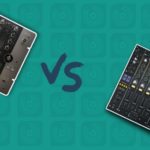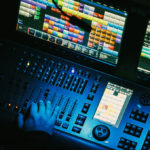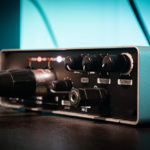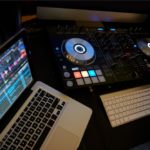The critical differences between two-channel and four-channel DJ controllers are that two tracks can be mixed on a two-channel DJ controller. A 4 channel controller has additional inputs, allowing for more flexibility, including mixing four songs simultaneously.
Whether you’re just starting your DJ journey or looking to upgrade your current setup, you might wonder what the differences are between a two-channel and a four-channel DJ controller.
To a beginner who doesn’t know what a channel is, don’t worry. I had no idea either when I started, so here’s the lowdown.
What Do Channels Mean On A Mixer?
Channels are the number of inputs, or ‘tracks,’ available for you to mix from. Each channel has a fader and buttons for trim/gain, high, mid, and bass.
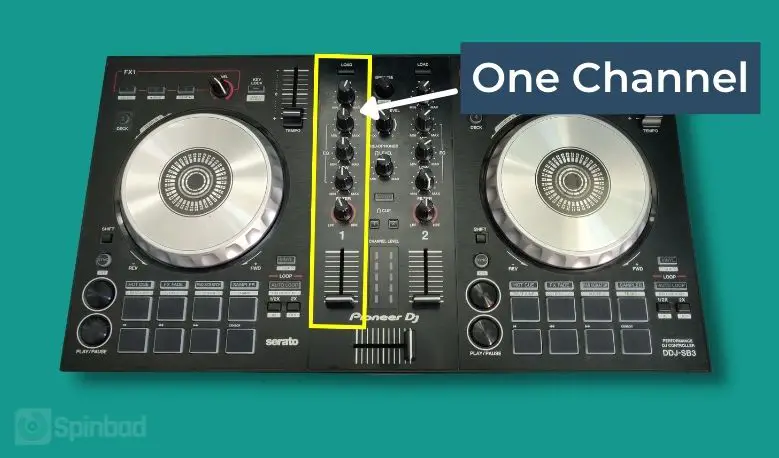
Each track or sound you want to play must be loaded onto a channel.
You can put effects on each channel individually or on the master output so that each channel has the same results.
What Is The Difference Between A 2 Channel And a 4 Channel DJ controller?
Two-channel controllers are the same as any other setup with two inputs. The jog wheel on each side is equivalent to a deck if we’re discussing CDJs or turntables.
Everything is integrated within the one controller, so unless you want to connect more hardware, you don’t need any other DJ equipment.
Two-channel controllers have a smaller footprint, so they’re great for home use. They’re easier to transport and cost considerably less than the 4 deck versions.
The larger four-channel controllers have four input ports. You can increase the number of devices by adding CDJs, digital devices, or turntables.
How Many Channels Do You Need On A DJ Controller?
This depends on how many input sources you have. Each source needs its own channel.
Suppose you’re going to be using more than two devices. In that case, it’s easier to have everything hooked up to your mixer or DJ controller without having to keep unplugging something and hooking something else up.
How Do You Use A 4 Channel DJ Controller?
Select what you want to play and load it to a channel from your DJ software or USB stick if your controller has a USB port.
When starting, you’ll probably be selecting complete tracks (songs) to mix from A to B.
As you get more experienced, you can get creative and mix individual components such as an acapella on top of an instrumental.
A 4 channel controller gives you control of 4 input sources, let’s call them deck A, B, C, and D.
Your setup could be a CDJ deck assigned to A, a USB stick assigned to B, your DJ software to C, and a turntable to D.
You can control all four channels by switching between A/B on one side and C/D on the other.
Mix each source in and out using the line faders and left jog wheel for channels A & B and right jog wheel for channels C & D.
What Can You Do With a 4 Channel Mixer?
Four-channel mixers are where your creativity and mixing come to life.
These higher-spec mixers offer various effects such as:
- Reverb
- Echo
- Phaser
- Flanger
- Gate
- Delays (That can be split across high, mid, and bass, and their timing changed to increase their power).
This added functionality enables you to turn the most monotonous track into a journey of build-ups and drops.
You can use your other decks to give the track a new running bassline and an acapella vocal as you’ve got more hardware connected.
Adding USB ports allows for recording or streaming via a USB cable to a laptop.
Do DJs Need 4 Channels?
From a technical aspect, two channels are all you need to create great mixes. Many professional DJ careers are based on this.
However, the more inputs you need, the more channels you need.
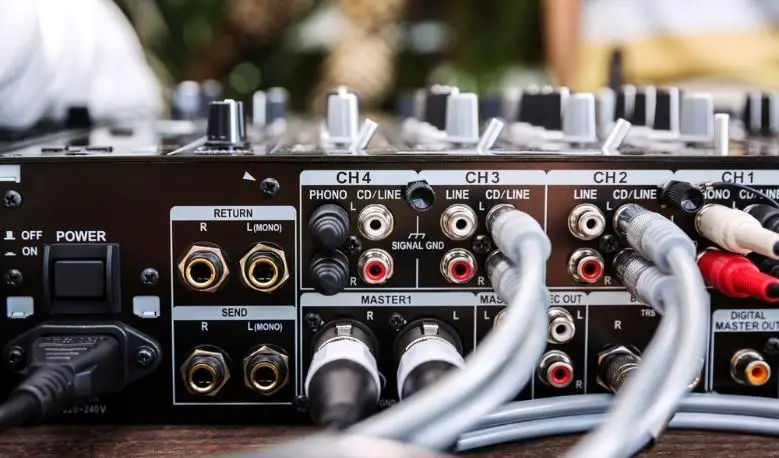
I regularly play alongside a singer. We use one of the channels for the microphone input. I can adjust the volume of her vocals and add reverb.
If you’re a ‘Hands in the air, make some noise‘ kind of DJ, you’ll need a channel for your mic. Likewise, if you’re a mobile DJ playing at weddings and parties, you’ll need the functionality of 4 channels for your mic input, the requested playlist, and cueing up the first dance.
Battle and scratch DJs have a rapid mixing style. If that’s you, a two-channel setup will suit you better.
With experience comes technical ability, so the flexibility of 4 channels gives you more elements to bring into your mixing style.
Why Do DJs Need 4 Decks?
The more decks you have, the more functionality you have.
4 deck mixing involves layering more sounds or tracks over the songs running in the main 2 deck mix or creating loops that can be dropped in and out at various points.
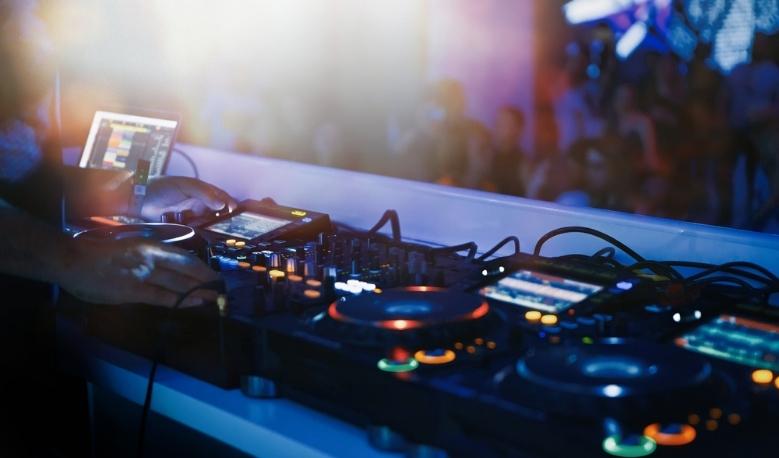
One-shot FX and vocal stabs can be assigned to a hot cue on a deck to create a new vocal on the fly.
Compatible DJ software such as Serato DJ, Rekordbox DJ, Virtual DJ, or Traktor can be mapped to each jog wheel or deck, opening the door for unlimited mixing combinations.
The master of 4 decks and four faders up mixing is undoubtedly Roger Sanchez. Take a look at how he uses all four decks to create energy.
Related Questions
What’s The Difference Between A DJ Controller vs Mixer?
A controller is an all-in-one unit combining jog wheels and a mixer. A mixer is a separate piece of kit attached to decks or turntables via cables.
Check out our DJ Mixer vs. DJ Controller head-to-head article.
What Are The Benefits of 2 Channel DJ Controllers?
They’re cost-effective, lightweight, and easy to transport. Due to their low price, they’re also easy to sell if you decide to upgrade.
How Many Decks Should I Start With?
Mixing from deck A to B on a two-channel controller is enough if you’re learning how to mix or don’t intend to play for money.
What Should I Look For When Buying A DJ Controller?
Look for a reputable brand such as Pioneer DJ, Denon DJ, or Native Instruments.
The main features to keep an eye on when buying a used controller are the jog wheels, faders, and buttons. Make sure they all move smoothly but aren’t too loose.
Check out this article for our top pick DJ Controllers and our buyer’s guide.
Why Are 4 Channel DJ Controllers So Expensive?
Four channels mean more input ports, DJ performance functions, and mixer FX. The components needed to provide all this extra functionality come at a price!
A DJ controller is a valuable piece of kit whether you’re a beginner or a pro. You might find that you never need more than two channels for a home unit, even if you’re out playing clubs.
If you go for a four-channel controller from the outset, learn your skills and technical ability on two channels.
Trying to run before you can walk will make you sound like you’re running with cymbals on your knees.
Want to learn more? Check out this article on controllers vs CDJs.
We hope you love the products we recommend. We may collect a commission if you purchase through one of our links. This doesn't cost you anything extra. If you do, thank you! As an Amazon Associate, I earn from qualifying purchases.




